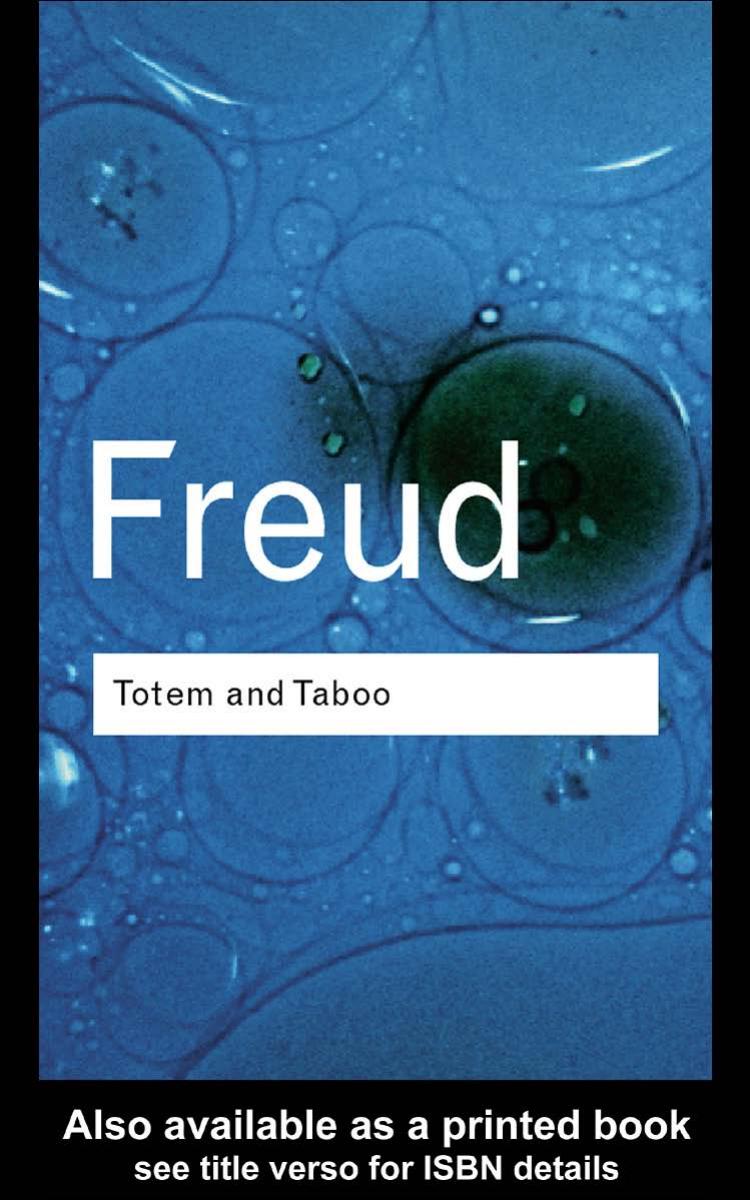Totem and Taboo by Sigmund Freud

Author:Sigmund Freud
Language: eng
Format: azw3, epub, pdf
Tags: General, Psychology, Movements
ISBN: 9781134524754
Publisher: Routledge
Published: 2003-09-01T23:00:00+00:00
(3)
I have adopted the term ‘omnipotence of thoughts’ from a highly intelligent man who suffered from obsessional ideas and who, after having been set right by psycho-analytical treatment, was able to give evidence of his efficiency and good sense. (Cf. Freud, 1909b.) He had coined the phrase as an explanation of all the strange and uncanny events by which he, like others afflicted with the same illness, seemed to be pursued. If he thought of someone, he would be sure to meet that very person immediately afterwards, as though by magic. If he suddenly asked after the health of an acquaintance whom he had not seen for a long time, he would hear that he had just died, so that it would look as though a telepathic message had arrived from him. If, without any really serious intention, he swore at some stranger, he might be sure that the man would die soon afterwards, so that he would feel responsible for his death. In the course of the treatment he himself was able to tell me how the deceptive appearance arose in most of these cases, and by what contrivances he himself had helped to strengthen his own superstitious beliefs. All obsessional neurotics are superstitious in this way, usually against their better judgment.1
It is in obsessional neuroses that the survival of the omnipotence of thoughts is most clearly visible and that the consequences of this primitive mode of thinking come closest to consciousness. But we must not be misled into supposing that it is a distinguishing feature of this particular neurosis, for analytic investigation reveals the same thing in the other neuroses as well. In all of them what determines the formation of symptoms is the reality not of experience but of thought. Neurotics live in a world apart, where, as I have said elsewhere [1911a, English translation, 20], only ‘neurotic currency’ is legal tender; that is to say, they are only affected by what is thought with intensity and pictured with emotion, whereas agreement with external reality is a matter of no importance. What hysterics repeat in their attacks and fix by means of their symptoms are experiences which have occurred in that form only in their imagination— though it is true that in the last resort those imagined experiences go back to actual events or are based upon them. To attribute the neurotic sense of guilt to real misdeeds would show an equal misunderstanding. An obsessional neurotic may be weighed down by a sense of guilt that would be appropriate in a mass-murderer, while in fact, from his childhood onwards, he has behaved to his fellow-men as the most considerate and scrupulous member of society. Nevertheless, his sense of guilt has a justification: it is founded on the intense and frequent death-wishes against his fellows which are unconsciously at work in him. It has a justification if what we take into account are unconscious thoughts and not intentional deeds. Thus the omnipotence of thoughts, the over-valuation of mental
Download
Totem and Taboo by Sigmund Freud.epub
Totem and Taboo by Sigmund Freud.pdf
This site does not store any files on its server. We only index and link to content provided by other sites. Please contact the content providers to delete copyright contents if any and email us, we'll remove relevant links or contents immediately.
The Art of Thinking Clearly by Rolf Dobelli(8841)
The 5 Love Languages: The Secret to Love That Lasts by Gary Chapman(8494)
Mindhunter: Inside the FBI's Elite Serial Crime Unit by John E. Douglas & Mark Olshaker(7834)
Becoming Supernatural by Dr. Joe Dispenza(7105)
The Road Less Traveled by M. Scott Peck(6634)
Nudge - Improving Decisions about Health, Wealth, and Happiness by Thaler Sunstein(6633)
Enlightenment Now: The Case for Reason, Science, Humanism, and Progress by Steven Pinker(6405)
Win Bigly by Scott Adams(6311)
Mastermind: How to Think Like Sherlock Holmes by Maria Konnikova(6235)
The Way of Zen by Alan W. Watts(5799)
Factfulness: Ten Reasons We're Wrong About the World – and Why Things Are Better Than You Think by Hans Rosling(4021)
The State of Affairs by Esther Perel(3926)
Gerald's Game by Stephen King(3918)
Man's Search for Meaning by Viktor Frankl(3631)
The Confidence Code by Katty Kay(3566)
Thinking in Bets by Annie Duke(3531)
The Worm at the Core by Sheldon Solomon(2917)
Enlightenment Now by Steven Pinker(2917)
Liar's Poker by Michael Lewis(2811)
